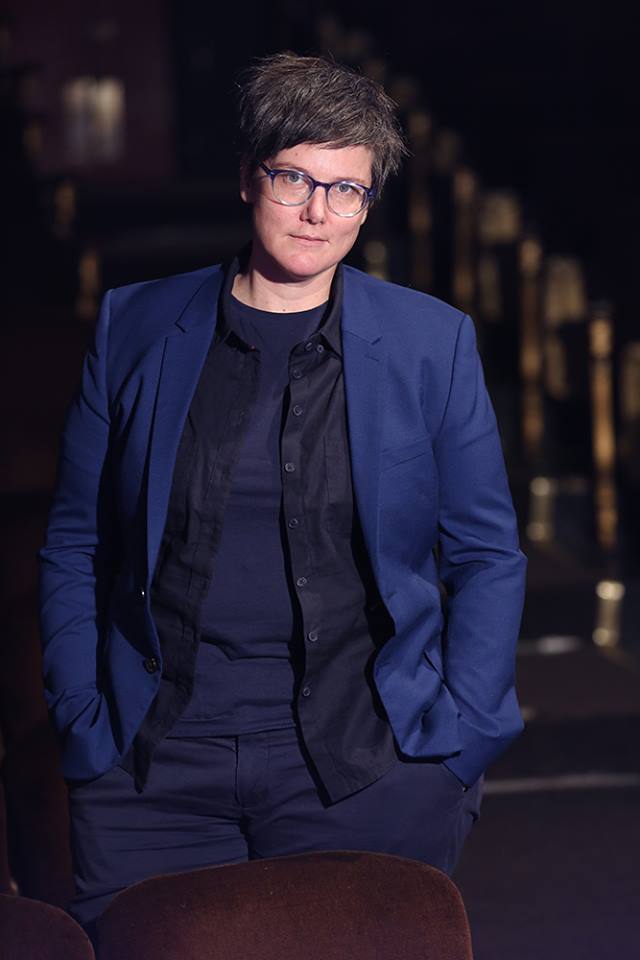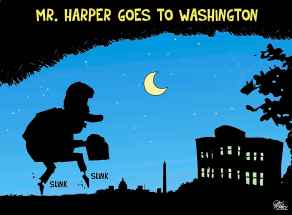Netflix comedy set will make you think
Read this article for free:
or
Already have an account? Log in here »
To continue reading, please subscribe:
Monthly Digital Subscription
$0 for the first 4 weeks*
- Enjoy unlimited reading on winnipegfreepress.com
- Read the E-Edition, our digital replica newspaper
- Access News Break, our award-winning app
- Play interactive puzzles
*No charge for 4 weeks then price increases to the regular rate of $19.00 plus GST every four weeks. Offer available to new and qualified returning subscribers only. Cancel any time.
Monthly Digital Subscription
$4.75/week*
- Enjoy unlimited reading on winnipegfreepress.com
- Read the E-Edition, our digital replica newspaper
- Access News Break, our award-winning app
- Play interactive puzzles
*Billed as $19 plus GST every four weeks. Cancel any time.
To continue reading, please subscribe:
Add Free Press access to your Brandon Sun subscription for only an additional
$1 for the first 4 weeks*
*Your next subscription payment will increase by $1.00 and you will be charged $16.99 plus GST for four weeks. After four weeks, your payment will increase to $23.99 plus GST every four weeks.
Read unlimited articles for free today:
or
Already have an account? Log in here »
Hey there, time traveller!
This article was published 06/07/2018 (2718 days ago), so information in it may no longer be current.
The title of Hannah Gadsby’s new 70-minute comedy set (currently available on Netflix) has absolutely nothing to do with the material. The 40-year-old Aussie standup makes that clear right away: Nanette is someone she met in a café, a possibly interesting woman who turned out not to be, and that is the last we hear of her.
Instead, this wonderfully misleading title signals that whatever we are expecting will not be what we get. And that is the whole point of this show, a funny, powerful bait-and-switch ploy that uses comedy to deconstruct comedy.
Gadsby keeps the paradoxes coming in this farewell-to-comedy tour that has actually launched her international career. She tells jokes — lightly, casually, almost shyly — and then circles around and comes back to them, forcing us to confront the pain that was hiding in plain sight.
Like one of those thrillers where a twist ending reveals everything that has come before in a new and blinding light, Nanette forces a tough and timely re-evaluation of humour and its tricky relations with power, trauma and misogyny. Watching Nanette in the #MeToo era of comedy, you’ll laugh. You’ll cry. Most of all, you’ll think.
Gadsby begins by chatting about what it was like growing up gay in Tasmania, “that little island floating off the ass end of mainland Australia” where homosexual acts were illegal until 1997. She remembers a time when lesbianism wasn’t about sexual identity, but just meant any woman who didn’t laugh at men’s jokes.
Gadsby talks about watching the Sydney Mardi Gras (equivalent to our Pride Parade) on TV. “Where do the quiet gays go?” she recalls thinking, as a somewhat subdued, tea-drinking teenager.

As part of what she jokingly calls mandated “lesbian content,” she also relates her coming-out story.
“Why did you have to tell me that?” her nonplussed mother responds. “How would you feel if I told you I was a murderer?”
Well, one would hope the murdering thing was “just a phase,” as Gadsby says.
But there’s an irrevocable turning point in Nanette, when Gadsby’s easy, understated, self-deprecating style suddenly flips.
“Do you understand what self-deprecation means when it comes from somebody who already exists in the margins?” Gadsby asks the audience. “It’s not humility. It’s humiliation.
“I put myself down in order to speak, in order to seek permission to speak. And I simply will not do this anymore.”
What follows is a blistering, brilliant rejection of comedy-as-usual. In response to the old saw that laughter is the best medicine, Gadsby suggests that jokes are too often used as disguise and denial and deflection. Of course, she puts forward this radical critique of jokes while still making jokes, and even as the stakes of her set become more and more serious, she still uses the rhythms of comedy — the callbacks and reversals, the controlled building and release of tension — to get her point across.
Comparing joking to storytelling, Gadsby points out that jokes have a two-part structure — setup and punchline — while stories have a beginning, a middle and an end. And it is in the ending, Gadsby suggests, where perspective, learning and change are found, all those difficult things that help us grow up.
Gadsby believes her own punchlines have left her fixated on past trauma, unable to move past it to the complicated emotions that come after. Nobody really wants to hear about how well she gets on with her mother now, she points out, or about all that healing and growing and reconciling. “Good on ya,” people say, but what they really want is hilarious dysfunction.
Comedy often leaves out the good bits, she suggests, the happy bits, the functional bits. It also papers over the bad bits. At the start of Nanette, Gadsby tells a joke about what sounds like a typical twentysomething pubbing misadventure, when some guy mistakes her for a bloke hitting on his girlfriend. It’s funny.

When she reveals near the end of the show what really happened — the three-part story rather than the two-part joke — it’s absolutely devastating.
Speaking about misogyny, homophobic violence and internalized self-loathing, Gadsby is fiercely angry but — continuing with her paradoxical approach — she also speaks against anger. It’s not just that angry men are considered “free speech heroes,” as she says, while angry women are considered mad bitches. For Gadsby, anger is just too easy.
Instead, she goes beyond awkward comedy to a new level of discomfort and uncertainty, one that feels like a reflection of our difficult times. Conventional jokes are structured to build up tension and then relieve it with a laugh. Gadsby is not letting us off that easily. “This tension?” she says at one disconcerting point near the end of the show. “It’s yours. I am not helping you anymore.”
alison.gillmor@freepress.mb.ca

Studying at the University of Winnipeg and later Toronto’s York University, Alison Gillmor planned to become an art historian. She ended up catching the journalism bug when she started as visual arts reviewer at the Winnipeg Free Press in 1992.
Our newsroom depends on a growing audience of readers to power our journalism. If you are not a paid reader, please consider becoming a subscriber.
Our newsroom depends on its audience of readers to power our journalism. Thank you for your support.










